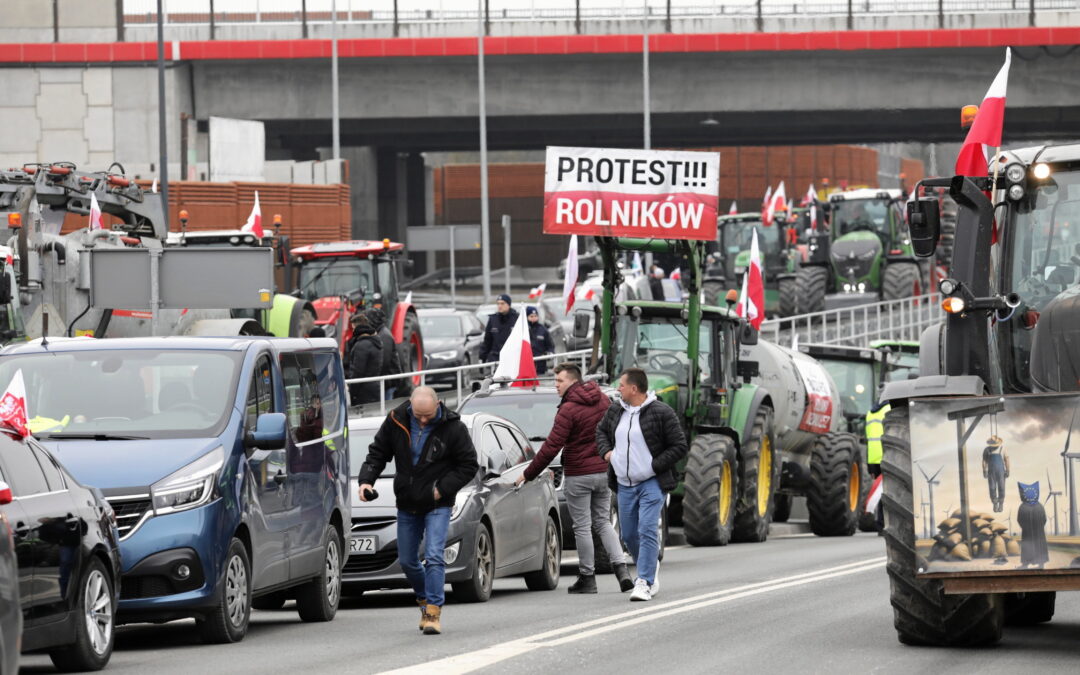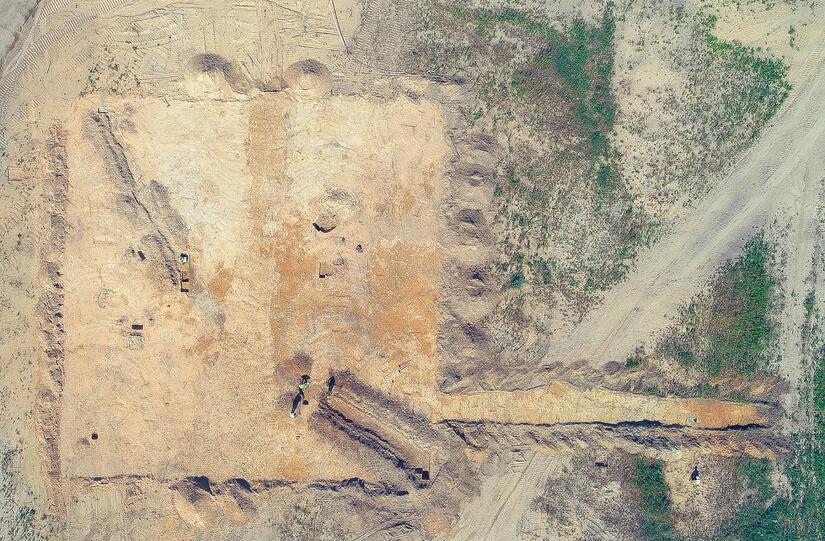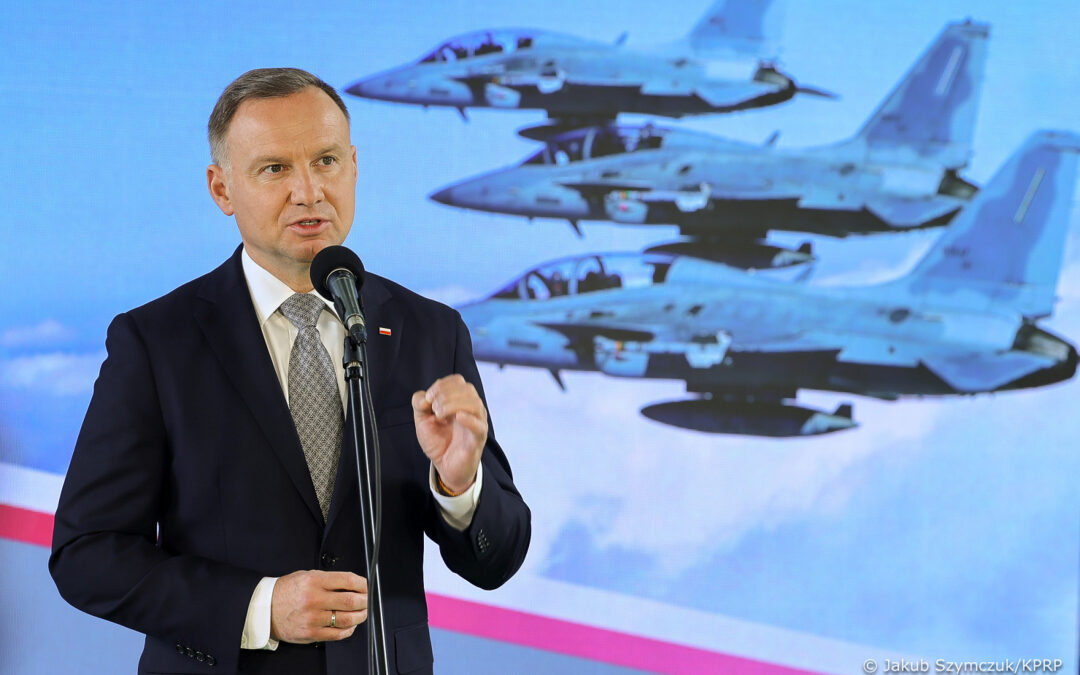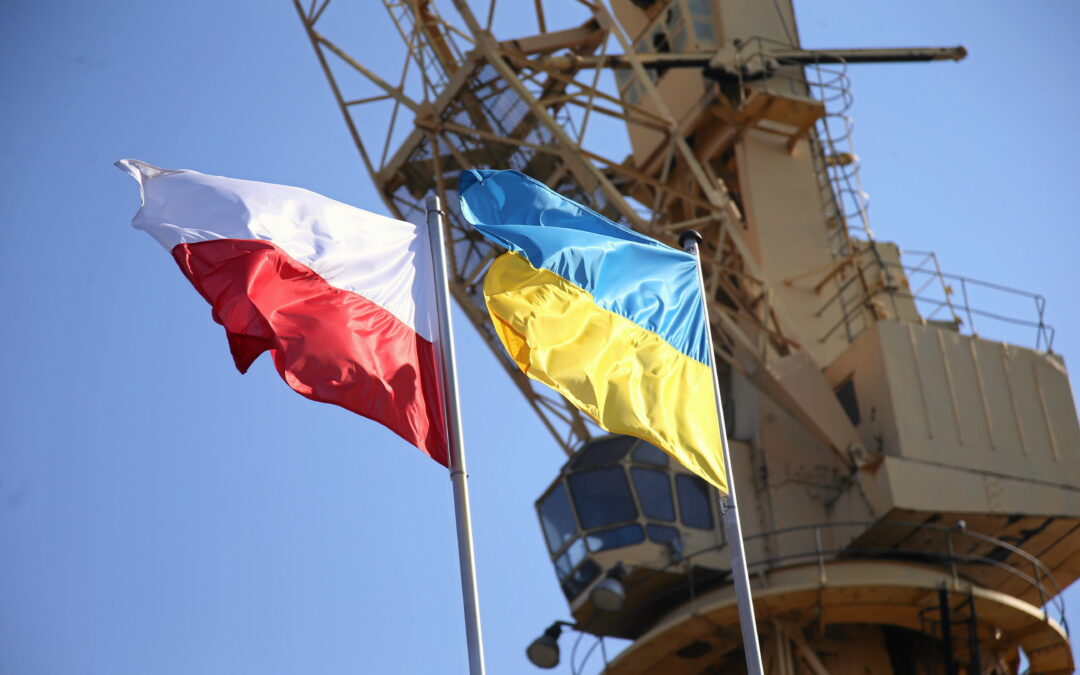Tens of thousands of farmers are blocking roads in several hundred places around Poland today in the largest set of demonstrations so far since they began a series of protests last month against EU environmental policies and agricultural imports from Ukraine.
According to police estimates, published ahead of the strike, there could be up to 70,000 protesters involved in blockades at 570 locations today. Farmers are blocking access roads to major cities, including the capital Warsaw, as well as border crossings with Ukraine.
Police say they have prepared a strong presence for today’s blockades after clashes broke out during a farmers’ protest in Warsaw earlier this month, leaving 14 officers injured. Demonstrators and opposition politicians accused the police of employing aggressive and provocative tactics.
“The events that took place [on 6 March]…have prompted the police to appeal for calm…ahead of further protests that have been announced for [today] across the country,” the police wrote in a statement published yesterday.
Today’s protests are planned to last from 7 a.m. until 7 p.m. However, if no agreement is reached with the government, the farmers warn they may decide to continue blockades for longer. Prime Minister Donald Tusk has previously held talks with farmers’ leaders to hear their demands.
#ProtestRolnikow w Gdańsku. Protestujący zbliżają się do Zieleniaka. Lecą pieśni religijne, patriotyczne i szlagiery Samoobrony w stylu "ten kraj jest nasz i wasz". @OnetWiadomosci pic.twitter.com/3tgUPyxLsv
— Piotr_Olejarczyk (@Olejarczyk_Onet) March 20, 2024
Ahead of today’s blockades, the mayor of Wrocław, Jacek Sutryk, banned the protests from his city’s streets, stressing that although he “understands the farmers’ demands”, it is his duty to ensure that residents “have the right to commute to work, school or home without tractors blocking the streets”.
He also noted that the ambulance service and fire brigade had warned that such blockades would cause “a real threat to life or health” by impairing their work. The mayor noted that his decision was upheld by a court.
This morning, Sutryk reported on social media that the street where he lives had been blockaded by the protesters, who also attached posted to his fence. He added that he had received “hundreds of threats” but declared that he “won’t be intimidated”.
The farmers began their strike action early last month in protest against EU climate policies and Ukrainian agricultural imports, both of which they say threaten their livelihoods.
Farmers argue that although politicians, including Tusk, have made promises to solve the problems, to date these have not been fulfilled.
“So far, the government is not proposing anything concrete, these are only stories about what it could possibly propose,” Sławomir Izdebski, one of the protest leaders, told the Dziennik Gazeta Prawna newspaper.
After holding a first round of talks with protesting farmers, @donaldtusk has pledged to lobby the EU to suspend or withdraw "practically all” agriculture-related provisions of its Green Deal.
He also called for an embargo on Russian and Belarusian goods https://t.co/CN82D6vjTp
— Notes from Poland 🇵🇱 (@notesfrompoland) February 29, 2024
However, yesterday Tusk appealed to the farmers to “open their eyes” and see that his government is “doing everything to help you” whereas “some [people] are doing everything to use you against me and my government”.
On Wednesday morning, the European Parliament announced it had reached an agreement with the European Council to extend the temporary suspension of import duties and quotas on Ukrainian agricultural exports to the EU for another year until 5 June 2025.
However, it added that “safeguards for EU farmers” had also been embedded in the agreement, including “an emergency brake for particularly sensitive agricultural products, namely poultry, eggs, and sugar”.
EU reaches deal to cap Ukraine imports of poultry, corn and grain
➡️ https://t.co/l8dg1xVqU2 pic.twitter.com/0Jl4P9fxYh— FRANCE 24 (@FRANCE24) March 20, 2024

Notes from Poland is run by a small editorial team and published by an independent, non-profit foundation that is funded through donations from our readers. We cannot do what we do without your support.
Main image credit: Mateusz Skwarczek / Agencja Wyborcza.pl

Alicja Ptak is senior editor at Notes from Poland and a multimedia journalist. She previously worked for Reuters.



















